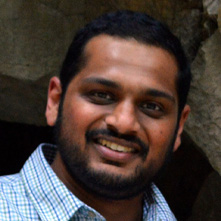The 7th Workshop on Graph Techniques for Adversarial Activity Analytics (GTA³ 2023)
December 15, 2023 | Sorrento, Italy (Hybrid)
Virtual access information (Zoom Link)
Meeting ID: 973 8672 6115 | Passcode: 827395
For past GTA3 workshops, please visit our archive page.
Theme & Purpose
Graphs are natural analytic tools for modeling adversarial activities across a wide range of domains and applications. Examples include strengthening the resilience and robustness of cyber networks, identifying and responding to threats and vulnerabilities in critical infrastructure, and combating covert illicit activities, such as smuggling and arms trafficking, that span across multiple domains (e.g., finance, communication, and transportation). The main purpose of this workshop is to provide a forum to discuss research problems and novel approaches on graphs, with emphasis on addressing the three fundamental problems for modeling adversarial activities - “Connecting the dots”, “Finding a needle in a haystack”, and “Defending against attacks”. Besides the activity-centric networks that have been the main focus of this workshop, text-rich networks and semantic networks (e.g., knowledge graphs) have drawn significant attention in our research community. Thus, an important objective involves enhancing the current graph computing capabilities to effectively handle these networks. Additionally, there is a need to investigate how the latest advancements in research, such as generative AI (GenAI) and large language models (LLM), can be leveraged to analyze these networks. This workshop aims to bring together a community of researchers, from both academia and industry, to share their experiences and exchange perspectives for future research directions. We also hope the workshop will serve as a medium to facilitate future collaborations among interested audiences and researchers.
Topics of Interest
Including but not limited to:
- Network alignment and data integration from multiple heterogeneous domains
- Subgraph detection and discovery algorithms for large networks
- Attack and defense strategies on graph models (e.g., graph neural networks)
- Generative models for synthesizing realistic networks (e.g., static, dynamic, etc.)
Fundamentals:
- Representation learning on graphs
- Multilayer and multiplex networks
- High-performance graph computing
- Explainability of graph models (e.g., GNNs)
- Limits of detectability and identifiability
- Link prediction and recommendation
- Information diffusion and influence maximization
- New methods for clustering and ranking on graphs
- Novel datasets and evaluation metrics for network analytics
Related topics:
- Knowledge graph creation, mining, and applications
- Complex anomaly detection and interpretation
- Summarization and visualization of large networks
- Interactive graph search and exploration
- Topological analysis (e.g., motif analysis) on large graphs
- Game-theoretic approach for adversarial modeling on graphs
- Graph-based semi-supervised learning, active learning, and transfer learning
- Frontiers of graph machine learning for adversarial activities analytics
Submission Instructions
Submissions to the workshop will be subject to a single-blind peer review process, with each submission reviewed by at least two program committee members in addition to an organizer. Accepted papers will be given either an oral or poster presentation slot, and will be published in the IEEE Big Data workshop proceedings.
Papers must be submitted in PDF format according to IEEE Computer Society Proceedings Manuscript Formatting Guidelines (Formatting Instructions) to fit within 10 pages (long papers), or 6 pages (short papers) including any diagrams, references and appendices. Submissions must be self-contained and in English. After uploading your submission, please double check the copy stored on the website.
Submissions should be made using the Online Submission System provided by IEEE BigData.
Accepted papers will be published in the IEEE proceedings.
Important Dates
- + Due date for full workshop papers submissionOctober 10, 2023
- + Notification of paper acceptance to authorsNovember 5, 2023
- + Camera-ready of accepted papersNovember 26, 2023
- + WorkshopsDecember 15, 2023
Keynote Speakers
We plan to invite speakers who are experts in relevant research areas. Please see our past workshops for more information: https://ccni.hrl.com/workshop/archive

Prof. Tyler Derr
Vanderbilt University

Prof. Callie Hao
Georgia Institute of Technology

Prof. Sameer Singh
University of California, Irvine

Prof. Hang Liu
Rutgers University
Accepted Papers

|
AutoKG: Efficient Automated Knowledge Graph Generation for Language Models.
Bohan Chen and Andrea Bertozzi
|

|
Hate Speech And Hate Crimes: A Data-Driven Study Of Evolving Discourse Around Marginalized Groups
Malvina Bozhidarova, Jonathn Chang, Aaishah Ale-Rasool, Yuxiang Liu, Chongyao Ma, Andrea Bertozzi, Jeffrey Brantingham, Junyuan Lin, and Sanjukta Krishnagopal
|

|
Hybrid Attack Graph Generation with Graph Convolutional Deep-Q Learning
Sam Donald, Rounak Meyur, and Sumit Purohit
|

|
Learning Explainable Multi-view Representations for Malware Authorship Attribution
Irsyad Adam, Alex Waagen, Dana Warmsley, and Jiejun Xu
|
Schedule
Times are listed in European CET and US PST
| 14:50 CET, 05:50 PST |
| |
Opening Remarks |
| 15:00 CET, 06:00 PST |
| |
Keynote 1: Data-Centric AI for Real-World Graph Applications - Prof. Tyler Derr |
| 15:40 CET, 06:40 PST |
| |
Keynote 2: Ultra-Low-Latency Graph Neural Networks: Applications and Implementations - Prof. Callie Hao |
| 16:20 CET, 07:20 PST |
| |
AutoKG: Efficient Automated Knowledge Graph Generation for Language Models |
| 16:35 CET, 07:35 PST |
| |
Hate Speech And Hate Crimes: A Data-Driven Study Of Evolving Discourse Around Marginalized Groups |
| 16:50 CET, 07:50 PST |
| |
Coffee Break
|
| 17:00 CET, 08:00 PST |
| |
Keynote 3: Editing Machines: Updating Text with Up-to-date Information - Prof. Sameer Singh |
| 17:40 CET, 08:40 PST |
| |
Keynote 4: High-Performance Intelligent Big Data Analytics - Prof. Hang Liu |
| 18:20 CET, 09:20 PST |
| |
Hybrid Attack Graph Generation with Graph Convolutional Deep-Q Learning |
| 18:35 CET, 09:35 PST |
| |
Learning Explainable Multi-view Representations for Malware Authorship Attribution |
| 18:50 CET, 09:50 PST |
| |
Closing Remarks |
Program Committee
- Anwar Said (Vanderbilt University)
- Aruna Jammalamadaka (HRL Laboratories)
- Dana Warmsley (HRL Laboratories)
- Dawei Zhou (Virginia Tech)
- Kang-Yu Ni (HRL Laboratories)
- Kevin Martin (HRL Laboratories)
- Michael Warren (HRL Laboratories)
- Patrick Mackey (Pacific Northwest National Lab)
- Sam Johnson (HRL Laboratories)
- Santosh Pandey (Rutgers University)
- Shiyang Chen (Rutgers University)
- Sumit Purohit (Pacific Northwest National Lab)
- Vagelis Papalexakis (University of California, Riverside)
- Xueqi Cheng (Vanderbilt University)
- Yunchao Liu (Vanderbilt University)
- Yunyong Ko (University of Illinois at Urbana–Champaign)
- Zhe Xu (University of Illinois at Urbana–Champaign)
Program Chairs (Organizers)











